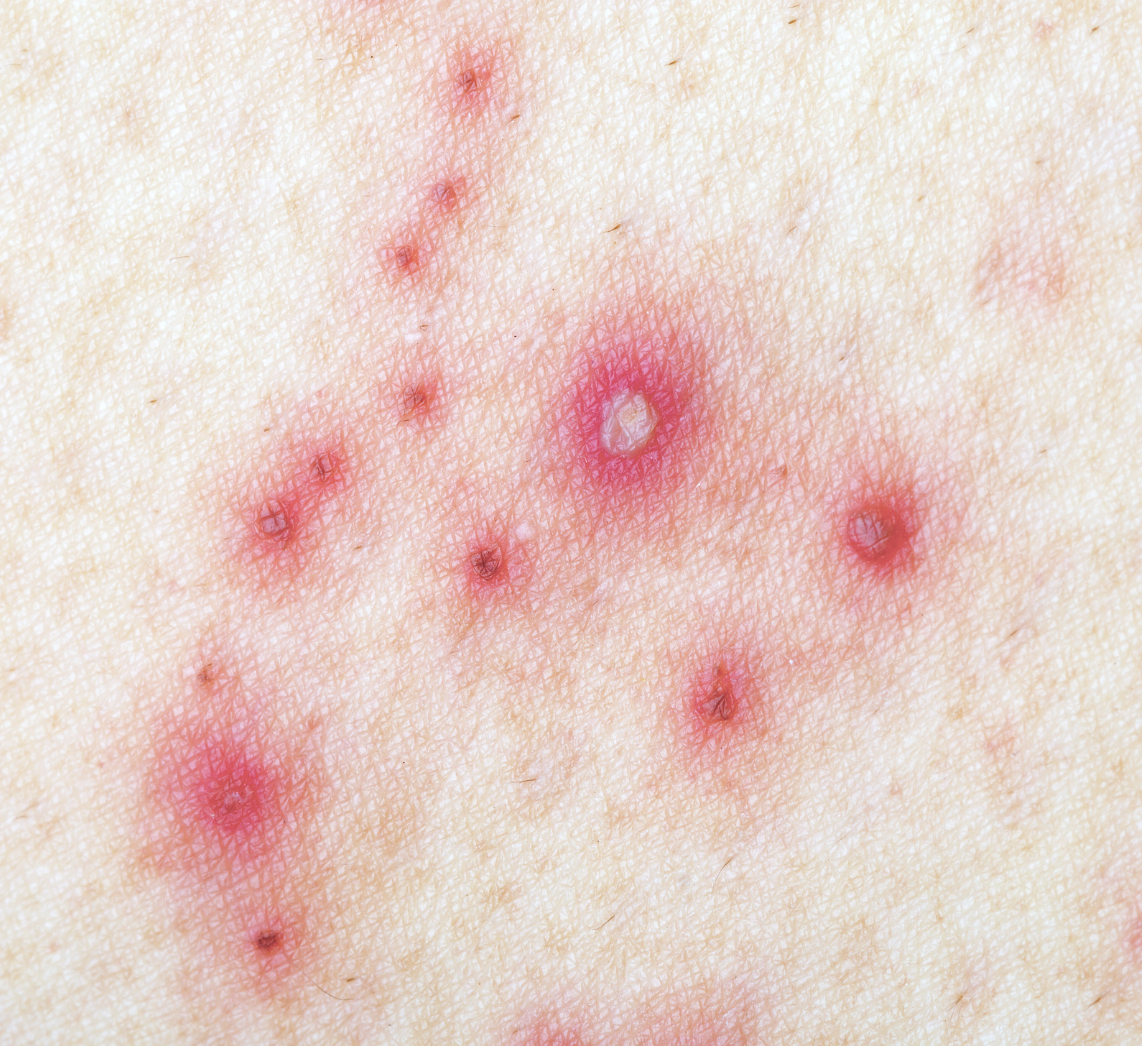
GENITAL HERPES
Did you know that one in every six people between the ages of 14 and 49 has genital herpes? Did you know that most of the infected people are not even aware because infection with the virus can be asymptomatic? So how can you tell if you have it? What should you do if you think you might have it?
What Is Genital Herpes?
Genital herpes is a sexually transmitted infection caused by an infection with the herpes simplex virus (HSV). There are two types of the herpes simplex virus- herpes simplex virus type 1 (HSV-1) and herpes simplex virus type 2 (HSV-2). Either type can cause genital herpes, but HSV-2 is responsible for most cases.
What Are the Symptoms of
Genital Herpes?
For many people, infection with the herpes simplex virus can be completely asymptomatic with no symptoms whatsoever. However, in others, it can manifest with the following symptoms:
- Patients often report a tingling, burning, or itching sensation before the outbreak occurs.
- Redness, inflammation, or swelling may precede the appearance of painful blisters to the affected areas.
- Classically, the blisters are on or around the genitals or anus, but can also develop on other parts of the body such as the buttocks, hips, and thighs.
- After a period of a few days, the blisters pop and develop into open sores that crust over and heal.
- Healing and resolution of the outbreak usually occurs in 2-6 weeks.
- The first outbreak following the initial infection is usually the most severe. In addition to painful blisters, patients can feel ill and experience fever, headaches, body aches, fatigue, and swollen lymph nodes. Patients may even experience pain with urination.
- Subsequent breakouts tend to become less severe and more mild.
- Common triggers that cause outbreaks include: sex, hormonal fluctuations, surgery, illness, fatigue, stress, or suppression of the immune system.

How Are Genital Herpes Transmitted?
Genital herpes is a sexually transmitted infection spread by close skin-to-skin contact. It is spread through sexual contact with someone who has the virus; this can be through vaginal, anal, or oral sex. Although transmission is most likely when the infected person has an active sore, the virus can also be passed on even if the infected person is completely asymptomatic.
Simple measures to decrease the spread of the virus include:
- Use protection during sex.
- Limit your number of sexual partners.
- Do not touch any of the blisters or sores of an infected person.
- Avoid kissing or skin-to-skin contact with people while blisters are present.
Diagnosing Genital Herpes
During an active outbreak, a dermatologist is often able to diagnose herpes simplex infection by examining the affected areas. Confirmation of the diagnosis can be done by taking a swab from the sore and sending it to a laboratory to detect the presence of HSV-1 and/or HSV-2. If you do not have an active outbreak, your provider may perform blood work looking for past infections with
HSV-1 or HSV-2.
How Is Genital Herpes Treated
Infection with the herpes simplex virus is life-long. While there is no cure, oral antiviral medications are available to speed the healing and control the outbreaks. Examples include: acyclovir, valacyclovir, and famciclovir. Depending on the frequency and severity of the condition, the oral medications can be taken episodically (at the first sign of an outbreak) or daily to prevent recurrences.
Complications and Considerations
People diagnosed with genital herpes should consider STD screening. In addition, it is important to disclose a history of genital herpes to the health care team during pregnancy.
Herpes and HIV
People infected with herpes have an increased risk for acquiring and transmitting HIV. The CDC recommends that all people diagnosed with HSV-2 also get tested for HIV.
Herpes and Pregnancy
Pregnant women who have herpes can pass the infection to the baby during pregnancy, during delivery, or while caring for their newborn. If you are pregnant and have a history of HSV, it is important to notify your health care provider so that the appropriate precautions can be taken to care for you and your baby.
Contact Dermatology & Surgery Associates to learn more about genital herpes.
Thousands of Bronxites Trust Dermatology and Surgery Associates
Dermatology & Plastic Surgery Under One Roof
Learn More About Our
Dermatology Services
Learn More About Our
Plastic Surgery Services
Dermatology and Surgery Associates | 3620 E Tremont Ave NY 10465 | 718.568.6401 | Pay Online | Patient Forms
By Dermatology and Surgery Associates | © 2022 All Rights Reserved. Design & Development by Goldman Marketing Group | Sitemap | Privacy Policy | The information available on this web site is provided for informational purposes only. This information is not intended to replace a medical consultation where a physician’s judgment may advise you about specific disorders, conditions and or treatment options. We hope the information will be useful for you to become more educated about your health care decisions. If you are vision-impaired or have some other impairment covered by the Americans with Disabilities Act or a similar law, and you wish to discuss potential accommodations related to using this website, please contact us at 201.584.5253.

